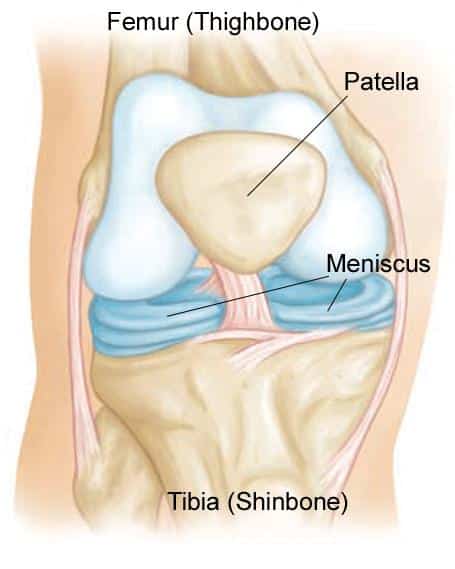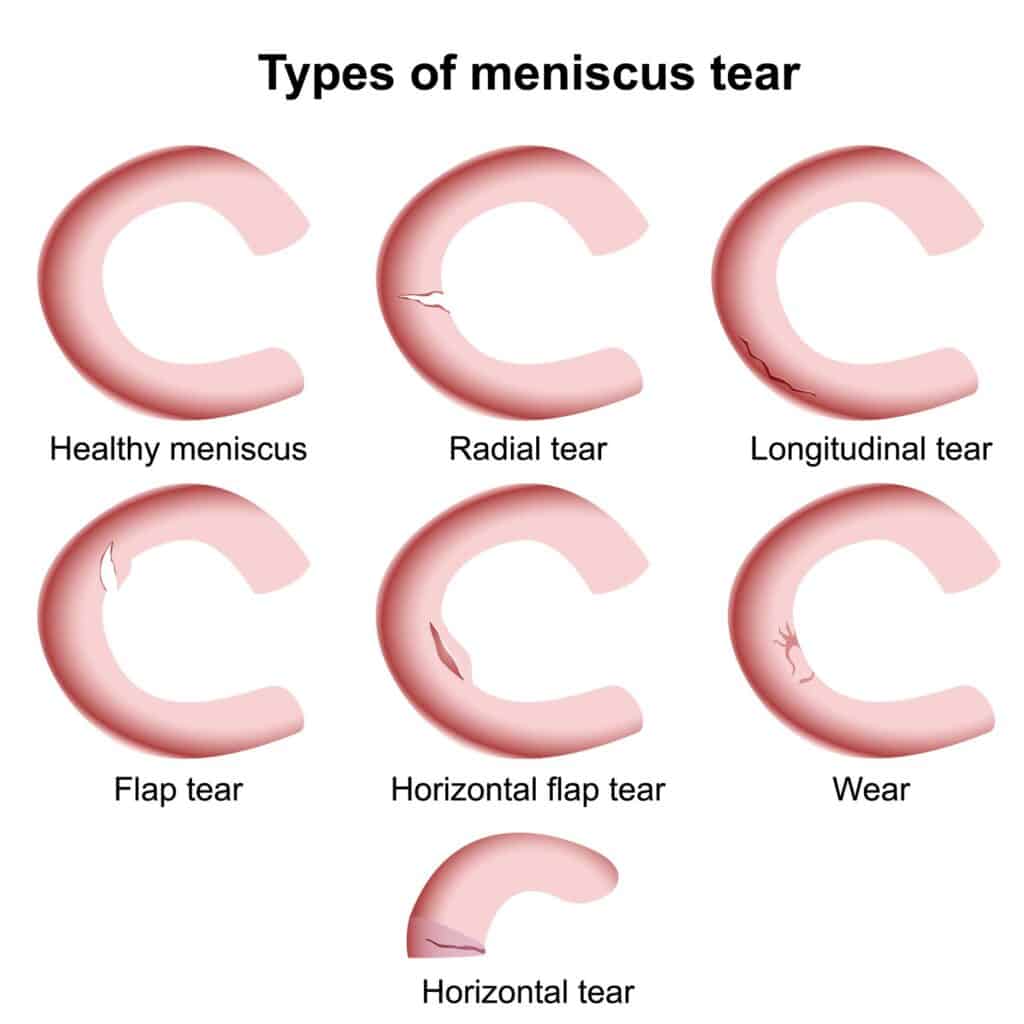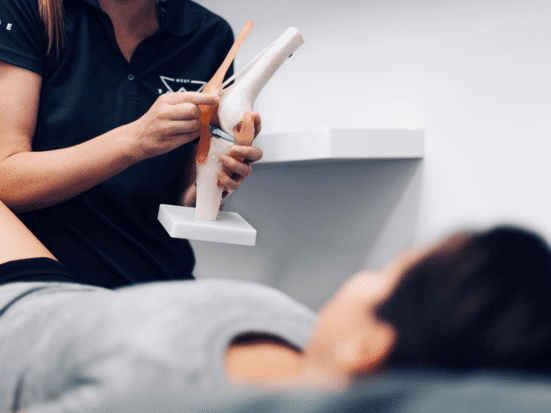So you may have heard of the meniscus before and if you have kept up to date with sports medicine research, the management of meniscus injuries is starting to change. Find out more about what the meniscus is exactly and how your injury can be managed below.
So what is the meniscus?
Each of your knees has two C-shaped pieces of cartilage that act like a cushion between your shinbone and your thighbone. The menisci help to transmit weight from one bone to another and play an important role in knee stability. The meniscus can tear from acute trauma or as the result of degenerative changes that happen over time. Tears are noted by how they look, as well as where the tear occurs in the meniscus.

What are the types of meniscus tears?
When it comes to meniscus tears, they aren’t created equal. Tears can occur in different parts of the tissue and have varying severities. With certain tears, your management will vary substantially.

What are the risk factors of injury?
In 2013 a systematic review (1) was published that identified the biggest risk factors for a meniscal injury. If you fall into any of the below categories, your chances of a meniscus injury increase.
Degenerative Tears
- Older age (> 60 years) [strong evidence]
- Work-related kneeling and squatting (>1 hour per day) [strong evidence]
- Higher BMI (greater than 25 kg/m2) [moderate evidence]
Acute Tears
- Playing rugby or soccer [strong evidence]
- Weight bearing during trauma [moderate evidence]
- Running has minimal evidence as a risk factor
What does the evidence say about surgical management?
A number of studies (2) have appeared in the last decade where comparison was made between meniscal ‘clean-up’ surgeries and sham (fake) surgeries. The only difference between groups was that one group had part of their meniscus removed and the other didn’t. So what did they find? There was no difference in outcomes between groups at 1 or 2 years follow-up. Yes that’s right, fake surgery worked just as well as real surgery.. Yes hard to believe, right?
However, there may be value in meniscus surgery in the younger populations or when there are symptoms such as locking, clicking or if you have failed with a conservative management program.
What the evidence say about exercise therapy?
Exercise in a lot of cases dictates the success of meniscal injury rehab. Targeted lower limb exercise have been shown time and time again to be just as effective as surgical intervention for meniscal injuries (3). Specifics on repetitions and sets should be prescribed individually to you by your health professional. The theory is that if you can strengthen your muscles, they act like suspension for your joint. The stronger your muscles get, the better your suspension is.

So what should I do now?
If you are confused and would like a fast-tracked recovery plan, see one of our clinicians. Our therapists are all well trained in meniscus assessment, treatment and management. Our team will be able to swiftly build you a treatment program tailored to you personally. If we think you need referral to a knee specialist or sports physician, we can direct you to doctors we trust.
Want to book now?
Simply click the link here https://forgewestend.com.au/book-online/ or call us on 0738440686, we would love to help you!
References
- Snoeker, B. A., Bakker, E. W., Kegel, C. A., & Lucas, C. (2013). Risk factors for Meniscal tears: A systematic review including meta-analysis. Journal of Orthopaedic & Sports Physical Therapy, 43(6), 352-367. https://doi.org/10.2519/jospt.2013.4295
- Sihvonen R, Paavola M, Malmivaara A The FIDELITY (Finnish Degenerative Meniscal Lesion Study) Investigators, et alArthroscopic partial meniscectomy versus placebo surgery for a degenerative meniscus tear: a 2-year follow-up of the randomised controlled trialAnnals of the Rheumatic Diseases 2018;77:188-195.
- Herrlin, S., Hållander, M., Wange, P., Weidenhielm, L., & Werner, S. (2007). Arthroscopic or conservative treatment of degenerative medial meniscal tears: A prospective randomised trial. Knee Surgery, Sports Traumatology, Arthroscopy, 15(4), 393-401
Comments are closed.

